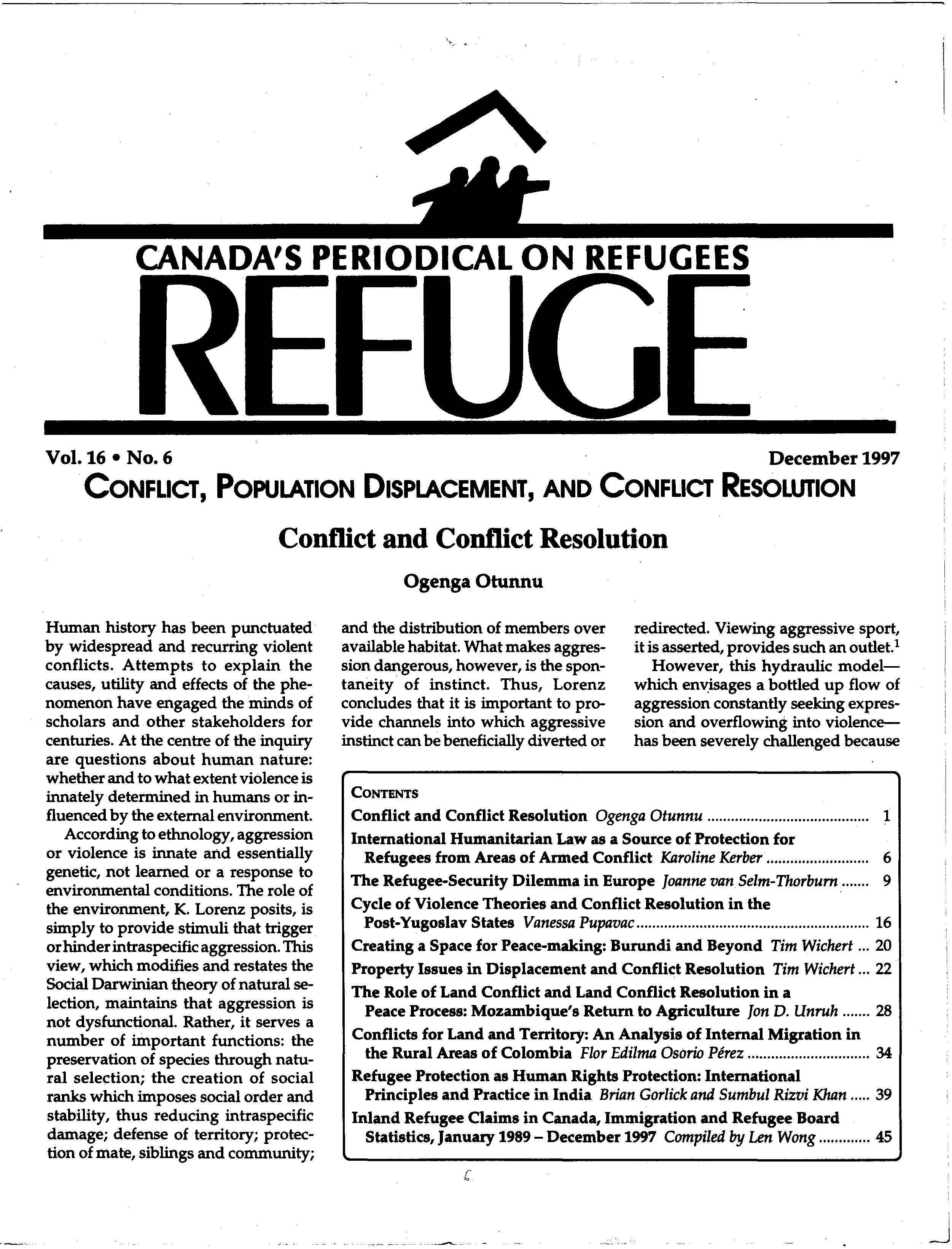Cycle of Violence Theories and Conflict Resolution in the Post-Yugoslav States
DOI:
https://doi.org/10.25071/1920-7336.21946Keywords:
Yugoslavia, NGOs, peace education, conflict resolution, psychosociology, pathologization, otheringAbstract
This paper examines the implementation of non-governmental programs in the post-Yugoslav states. Current conflict resolution initiatives are informed by theories of deviancy and the idea of cycles of violence. The presumption of such programs is that conflict has resulted from a culture of violence. Whilst some non-governmental organisations have expressed doubts about the effectiveness of their peace education work, the reasons for the problems they experience are often misunderstood. One reason that is never addressed is that people from the region are already familiar with the concept of peace education, but have seen it fail. Ironically, postwar Yugoslavia was very important in the development of the field of peace education and was held up as a model of ethnic conflict management for other countries to follow.
Metrics
Downloads
Published
How to Cite
Issue
Section
License
Copyright (c) 1997 Vanessa Pupavac

This work is licensed under a Creative Commons Attribution-NonCommercial 4.0 International License.
Refuge authors retain the copyright over their work, and license it to the general public under the Creative Commons Attribution-Non Commercial License International (CC BY-NC 4.0). This license allows for non-commercial use, reproduction and adaption of the material in any medium or format, with proper attribution. For general information on Creative Commons licences, visit the Creative Commons site. For the CC BY-NC 4.0 license, review the human readable summary.







